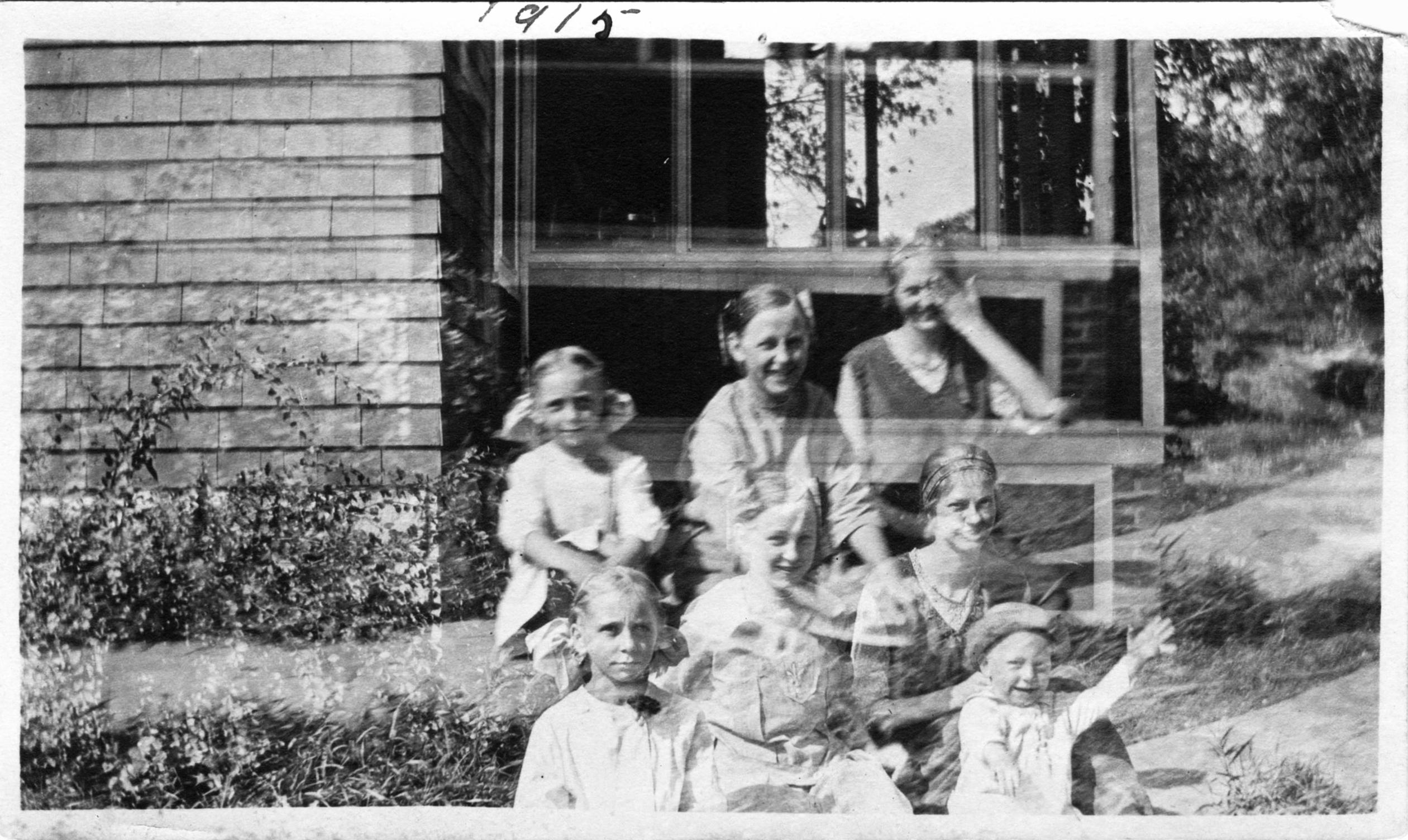It has become that time of evening when people sit on their porches, rocking gently and talking gently and watching the street and the standing up into their sphere of possession of the trees, of birds hung havens, hangars…
The opening line of Samuel Barber’s Knoxville: Summer of 1915 for voice and orchestra paints this dreamy, nostalgic scene of a summer, and America, long past. It’s a partial setting of James Agee’s autobiographical fragment of prose of the same title, written in a ninety-minute, improvisational stream of consciousness in 1935. Agee’s essay is about childhood memory- the lingering light of lazy summer evenings in an idyllic Knoxville, Tennessee- a quilt spread out on the dewy grass, the gentle sounds of subdued conversation, a porch rocking chair, a garden hose, the buzz of locusts and crickets, the hum of a passing automobile. The image is rooted in the comfort and security felt by a child surrounded by a loving family. But, by Agee’s final, nocturnal lines, we’re left with a sense of awe and mystery, fragility, and a quiet acceptance of mortality:
…the talk is quiet, of nothing in particular, of nothing at all in particular, of nothing at all. The stars are wide and alive, they seem each like a smile of great sweetness, and they seem very near. All my people are larger bodies than mine, quiet, with voices gentle and meaningless like the voices of sleeping birds. One is an artist, he is living at home. One is a musician, she is living at home. One is my mother who is good to me. One is my father who is good to me. By some chance, here they are, all on this earth; and who shall ever tell the sorrow of being on this earth, lying, on quilts, on the grass, in a summer evening, among the sounds of night. May god bless my people, my uncle, my aunt, my mother, my good father, oh, remember them kindly in their time of trouble; and in the hour of their taking away.After a little I am taken in and put to bed. Sleep, soft smiling, draws me unto her: and those receive me, who quietly treat me, as one familiar and well-beloved in that home: but will not, oh, will not, not now, not ever; but will not ever tell me who I am.
Samuel Barber was inspired immediately by this text when he first read it around 1947. The composer commented that “the summer evening he describes in his native southern town reminded me so much of similar evenings when I was a child at home.” As the voice enters, a gentle rocking motion pulls us into the sleepy tranquility and comfort of the scene. Listen to the way the instrumental lines emerge and converse, from the pastorale serenity of the oboe to the plaintive call of the horn. At moments, the music shimmers with hazy, expansive pandiatonic harmony vaguely similar to the magical opening chords of Aaron Copland’s Appalachian Spring.
Here is soprano Dawn Upshaw’s 1988 recording with David Zinman and the Orchestra of St. Luke’s:
Recordings
- Barber: Knoxville: Summer of 1915, Op.24, Dawn Upshaw, Orchestra of St. Luke’s, David Zinman iTunes
- a 1950 performance by Eleanor Steber and the Dumbarton Oaks Orchestra, conducted by William Strickland. Barber wrote this piece for Steber, who gave the premiere with Serge Koussevitzky and the Boston Symphony in 1948.


I love Dawn Upshaw, though I confess to only being familiar with her recording of Gorecki’s 3rd. Here, I can’t understand a word lol, but this is beautiful. The same with Barber. I knew his Adagio for Strings from one of Michael Connelly’s novels. These two make a beautiful combination. Thank you.
Górecki’s Third is another extraordinary piece. Upshaw collaborates again with Zinman in that recording. Thank you, J.D.
I own four recordings of ‘Knoxville’, admiring Steber’s flawless, precision and Upshaw’s lyricism. My favorite, though, is the one I memorized as a teenager, by Leontyne Price and Thomas Schippers. It is anything but precise, but overflows with the vitality and passion that made Price a legend on stage.
Is there an arrangement of Knoxville: Summer of 1915 for Alto?
Kathleen Battles recording is great as well.